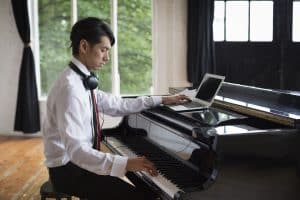Discover how learning piano whether you are young or older in age sets the stage for future success!
From boosting cognitive skills, improving fine motor skills, quality of life and enhancing discipline to fostering creativity, and emotional intelligence, the benefits are endless.
Dive into how this timeless skill not only enriches your present but also paves the way for lifelong advantages. Start now and set yourself up for future success!
If you’re considering learning to play the piano or having your child learn to play piano, starting early could be one of the best decisions you make for yours and their future.
The benefits of piano playing extend far beyond just musical proficiency, influencing cognitive development, academic success, and emotional growth.
In this blog post, we’ll explore how learning piano at a young age or even right now can set the foundation for lifelong advantages, making it a worthwhile investment for both children and adults.
The Cognitive Boost: How Early Piano Lessons Enhance Brain Development
Learning to play piano engages multiple areas of the brain, leading to significant cognitive benefits.
Research has shown that early piano training can enhance brain function, improve memory, and increase attention span. A study at Barry University states that “music may be valuable tool for the integration of thinking across both brain hemispheres.”(pg .15) For children, this means better performance in school and a sharper mind for problem-solving.

The complex interplay of reading music, coordinating hand movements, and listening intently stimulates neural connections, which can lead to improved academic outcomes. Piano playing is a fantastic way to enhance cognitive skills such as spatial-temporal reasoning, which is essential for subjects like mathematics and science.
By starting piano lessons early, children develop stronger problem-solving skills and a more robust memory, skills that will serve them well throughout their educational journey. The same study listed above quotes “When played as background music, Mozart was shown to improve reading comprehension test scores of 8th and 9th grade students compared to the equivalent groups who were not exposed to any music.” (pg. 18)
Building Discipline and Patience Through Piano Practice
One of the most valuable life skills gained from learning piano is discipline. Practicing regularly requires a commitment of time and effort, helping young learners develop a strong work ethic. This discipline extends beyond music practice and can positively impact other areas of life, including academic studies and personal goals.
Consistency in piano practice teaches children to set goals, work towards them methodically, and manage their time effectively. These skills are transferable to virtually any field, making early piano training a powerful tool for fostering perseverance and patience.
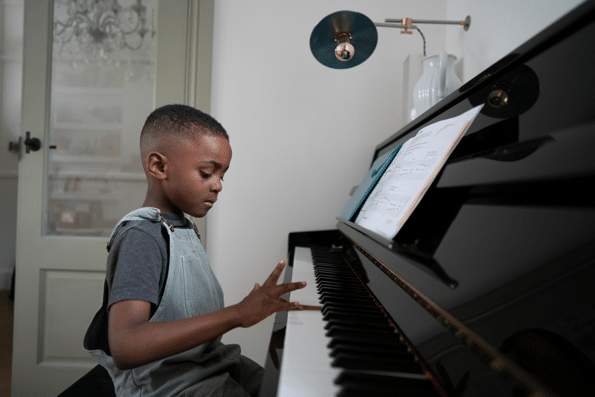
Enhancing Creativity and Emotional Expression
Playing the piano is not just about technical skill; it’s also a profound form of self-expression.
Early exposure to music allows children to explore their creative side, experiment with different sounds, and express their emotions through their playing. This creative outlet is crucial for emotional development and can lead to increased self-confidence and a better understanding of one’s feelings.
Furthermore, music education encourages children to appreciate the arts, which can lead to a lifelong love of creativity and cultural enrichment. The ability to express oneself through music provides a unique way to navigate and understand emotions, contributing to overall emotional well-being.
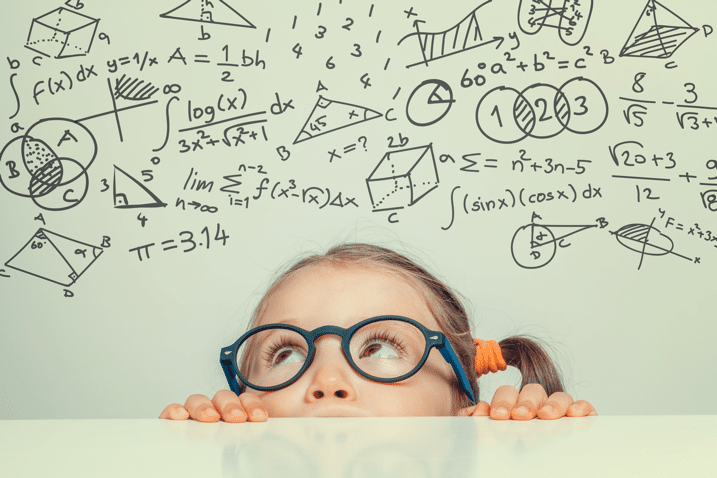
The Academic Advantage: How Piano Training Aids Academic Success
The connection between piano playing and academic achievement is well-documented. Studies have shown that students who engage in music education, particularly piano, often outperform their peers in standardized tests and academic performance.
A 4-month study in 1999 conducted on 86 2nd graders wanted to find out music’s effect on the student’s math skills. The researchers in the study provided 1 group of students’ piano lessons and math instruction while the other only received math instruction. The result was the students that took piano lessons scored 51 points higher than those who didn’t receive piano lessons. (pg16)
The skills developed through piano training, such as attention to detail, pattern recognition, and auditory discrimination, translate into better academic results.
Moreover, learning to read and interpret musical notation can enhance reading skills and linguistic abilities. This dual benefit supports stronger literacy skills and improved overall academic performance. By integrating piano lessons into a child’s routine, you are not only investing in their musical talent but also in their academic future.
That’s great and all for the kids but I’m an adult. Is it too late for me to benefit from learning to play piano?
Absolutely not.
Studies show that listening to music can be beneficial but learning to play piano is even more beneficial.
“Listening to music generates wide-spread cortical activity that expands beyond the auditory cortex involving brain areas related to attention, semantic processing, memory, motor function, and emotional processing (Särkämö et al., 2008).
Moreover, playing a musical instrument is a complex and motivating activity that comprises the coordination of multiple sensory modalities (auditory, visual, and somatosensory) and motor system in a unique way (Research).”
Also adults even older in age can improve fine motor skills by learning to play the piano after just 1 year. The Purdue Pegboard was used in a study to analyze speed, accuracy, and precision between 2 groups of people.
One group took piano lessons while the other did not. In summary, the group that had piano lessons led to better overall improvement compared to the group without piano lessons, with most gains happening in the first 6 months for motor skills between both hands and in the latter 6 months for others skills like cognition and a combination of motor skills and cognition.
In other words, their hand eye coordination was improved during the study and they did much better than the group who had no piano lessons. The full study can be found here: Scroll to section 2.2.2.
Social and Emotional Benefits of Learning Piano
Beyond cognitive and academic advantages, piano playing fosters social and emotional growth. Children who learn to play piano often experience increased self-esteem and confidence as they master new pieces and achieve milestones.
Additionally, participating in group lessons or recitals provides valuable social interactions and helps develop teamwork and communication skills.
Music education also encourages resilience. Overcoming challenges, such as learning a difficult piece or performing in front of others, builds emotional strength and adaptability. These social and emotional benefits contribute to a well-rounded and confident individual.
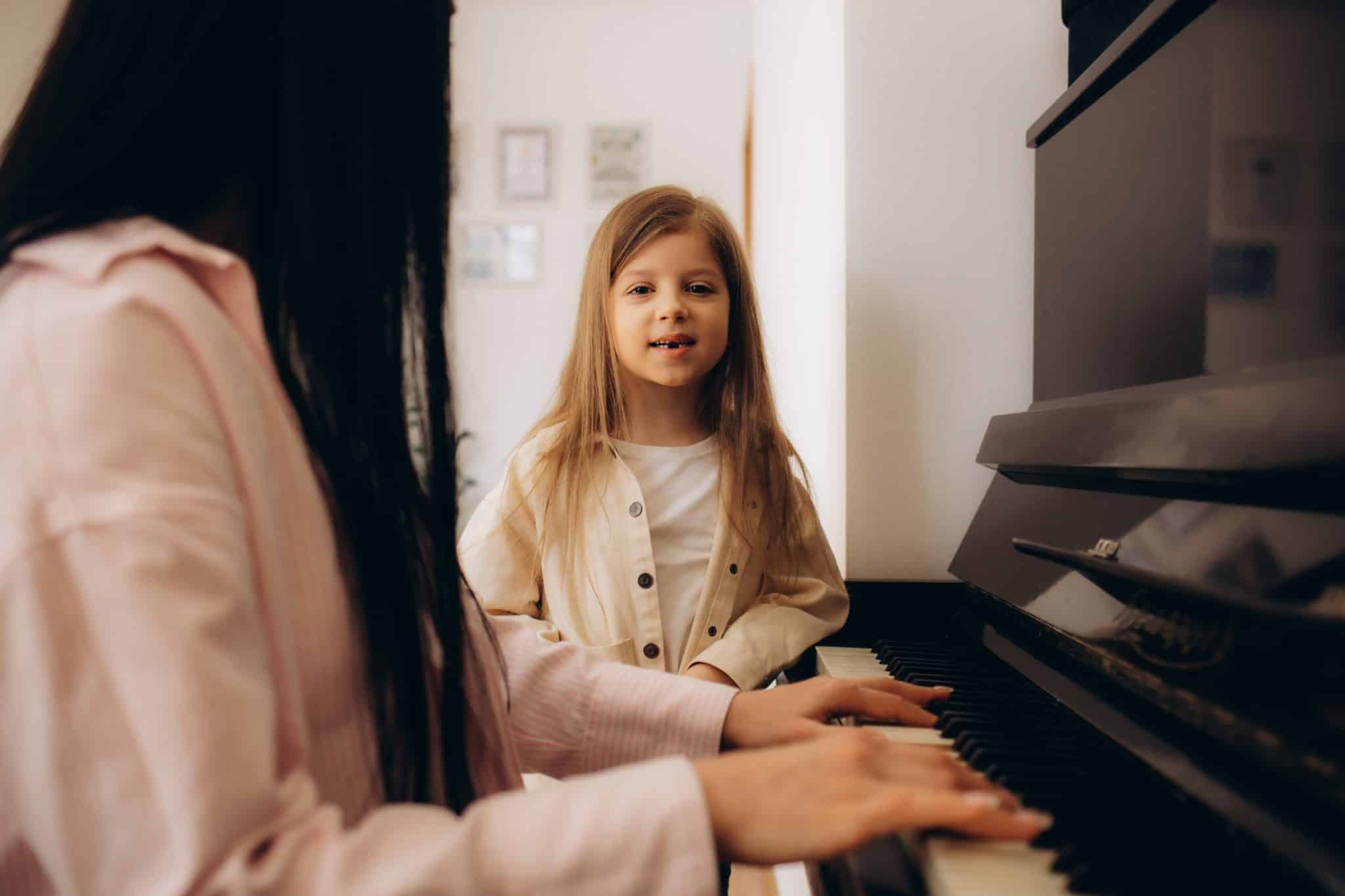
Starting Piano Lessons: What You Need to Know
If you’re considering enrolling your child or yourself in piano lessons, here are a few tips to get started:
- Find a Qualified Instructor: Look for a piano teacher with experience and a teaching style that matches your learning preferences or your child’s age and needs.
- Set Realistic Goals: Start with achievable goals and gradually increase difficulty as skills improve. This helps maintain motivation and ensures steady progress.
- Create a Practice Routine: Establish a regular practice schedule to build discipline and make consistent progress.
- Encourage a Love of Music: Surround learners with various musical experiences to foster a deeper appreciation and enthusiasm for piano playing.
In conclusion, learning to play piano at an early age offers a multitude of benefits that extend well into later life but even as an adult you can benefit in your movement and cognition which, in most cases, tends to deteriorate with age. From cognitive and academic advantages to emotional and social growth, the skills acquired through piano training are invaluable. Whether for your child or yourself, investing in piano lessons is a decision that can enrich lives and unlock a future full of potential.
Ready to embark on the musical journey? Check out my FREE “Piano By Ear” introductory lesson to get playing today and reap the lifelong benefits of early piano education!
